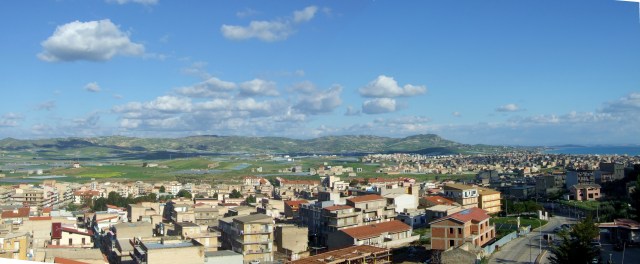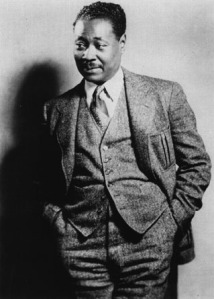So begins A Bell for Adano by John Hersey, winner of the Pulitzer Prize for the Novel for 1945. Hersey’s approach to the novel is explicitly didactic from the beginning—prior to this opening sentence, he offers a foreword that explains his purpose in writing the novel, and it’s all the optimism and exceptionalism and spirited nationalism (maybe the best of all these impulses, to be sure) you would expect from an American writing in the flowering of the Pax Americana, a world-altering victory that would usher in a new era, and one in which the Stars and Stripes reigned supreme.
He informs us in the foreword that his interest is in showing us “a good man”, Major Joppolo, an Italian-American tasked with establishing law and order in the Sicilian city of Adano now that it’s under American occupation as the Allies press on into Italy to topple Mussolini. He informs us, before the story even begins, that Joppolo “represented in miniature what America can and cannot do in Europe,” and eventually claims sweepingly that “he is our future in the world. Neither the eloquence of Churchill nor the humaneness of Roosevelt, no Charter, no four freedoms or fourteen points, no dreamer’s diagram so symmetrical and so faultless on paper, no plan, no hope, no treaty—none of these things can guarantee anything. Only men can guarantee, only the behavior of men under pressure, only our Joppolos.”
That’s a lot of weight to hang on a single character in a novel before we’ve heard him speak or seen him step from his landing craft and survey the town he will inhabit. My initial criticism of this novel is that, stylistically, it proceeds to give every sign of being just that single-minded, presenting Major Joppolo in the simplest possible light and bringing in basically every other character and situation in such a way as to show both how stacked the odds are against his success and yet of course how inevitably he will succeed by dint of his sheer goodness. On the other hand, this is the sort of criticism I floated about The Bridge of San Luis Rey when it began, in moralistic fashion and aggressively foreshadowing the book’s ending, and that turned out to be a gem of a novel, one of the brighter stars in Pulitzer’s constellation. Wilder made the style work, and turned the novel’s limitations into a powerful rhetorical device that imbued each of his characters with seriousness and meaning. So who am I to say yet that Hersey will not do the same? I only express concern at the outset.

The fictional Adano is allegedly based on this gorgeous Sicilian city, Licata: the panorama (courtesy of Wikipedia) is a wonderful image to carry with me as I read.
Victor Joppolo is middle-aged, steady, almost too classically the picture of the stoic, determined man of justice so beloved by American popular art in the middle of the 20th century (I think of Gary Cooper here, and his many imitators), although I’ll note with satisfaction that Hersey could easily have skewed towards making him a dialect-spouting, excitable caricature of an Italian immigrant, and totally avoids it. Still, though, I find myself more drawn in the early going to the much more cynical, sharp-minded sergeant who accompanies Joppolo ashore, a Hungarian-American named Leonard Borth, who has traveled the world, it seems, and likes a good joke more than Major Joppolo. The two of them have to figure out how to control a town full of people they don’t know—half of them ex-Fascists who dream Mussolini will rise again, and the other half Italians who hated Mussolini and Fascism but hardly can be expected to trust a couple of American G.I.s to do much better. The little I know about this book suggests that the titular bell—and recovering or restoring it somehow for the town—plays a big role in that. But surely the book will have to cover more than this kind of architectural rescue mission.
There’s not much more to say as yet—as is my custom, I make this first post based on only the first few pages, just to give me something to reference later (either to note happily how spot on I was, or to cringe a little at how far off my guesses flew). I approach Hersey’s novel right now, thinking that at best I’m reading a pleasant but slightly forgettable “rah rah America” story, and at worst an excessively stereotypical and pig-headed “rah rah America” story. Above the floor of the worst Pulitzers but well below the altitudes reached by the best. Time will tell.
